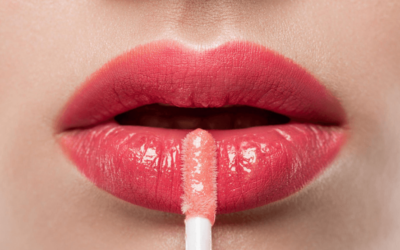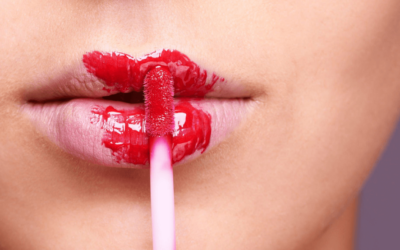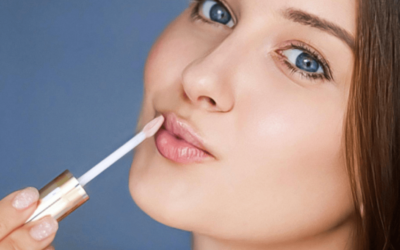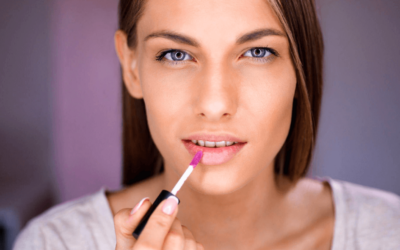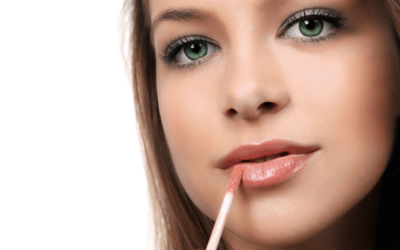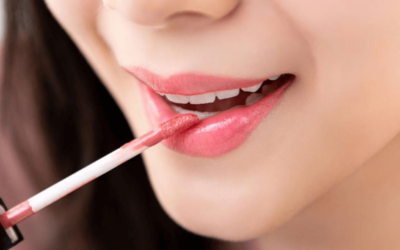Have you ever wondered what goes into your favorite lip gloss? With the increasing demand for transparency in the cosmetic industry, consumers are becoming more conscious of the ingredients used in their beauty products.
One particular concern that has sparked curiosity is the presence of whale sperm in lip gloss.
In this article, we will delve into the truth behind this controversial topic, exploring the use of animal-derived ingredients in cosmetics and shedding light on the quest for cruelty-free alternatives.
The Whale Sperm Myth Debunked
It’s time to set the record straight – whale sperm is not an ingredient in lip gloss. This misconception seems to have originated from a misinterpretation of a common ingredient called “spermaceti.”
Spermaceti is a wax-like substance found in the head cavities of sperm whales, not their sperm. It has historically been used in various industries, including cosmetics, due to its beneficial properties.
However, modern cosmetic formulations have replaced spermaceti with alternative ingredients, rendering the use of whale-derived substances unnecessary.
Animal-Derived Ingredients in Cosmetics
While the presence of whale sperm in lip gloss is nothing more than a myth, it is essential to acknowledge that the cosmetic industry has, historically, relied on various animal-derived ingredients.
These ingredients served purposes such as enhancing product texture, improving stability, or providing unique properties. Some common animal-derived ingredients that have been used in cosmetics include beeswax, lanolin, and carmine (derived from insects).
The Shift Towards Cruelty-Free Cosmetics
In recent years, there has been a growing movement towards cruelty-free cosmetics, driven by consumer demand for ethical and sustainable beauty products.
As awareness about animal welfare increases, many individuals are seeking alternatives to cosmetics that use animal-derived ingredients.
Cosmetic companies are responding by reformulating their products to exclude such ingredients and adopting cruelty-free practices. By doing so, they cater to the values of consumers who prioritize ethical choices.
Sustainable and Vegan Alternatives
The quest for cruelty-free cosmetics has led to the development of innovative and sustainable alternatives to animal-derived ingredients. Beeswax, for instance, can be replaced with plant-based waxes such as candelilla or soy wax.
Similarly, lanolin, obtained from sheep’s wool, can be substituted with plant-based oils like jojoba or shea butter. These alternatives not only provide similar benefits but also align with vegan and environmentally friendly principles.
Transparent Labeling and Consumer Empowerment
To aid consumers in making informed choices, cosmetic companies have started implementing transparent labeling practices.
By listing all ingredients used in their products, including any animal-derived components, companies empower consumers to make conscious decisions about the cosmetics they purchase.
This transparency ensures that individuals who wish to avoid animal-derived ingredients can easily identify and opt for cruelty-free alternatives.
The Importance of Research and Education
To navigate the world of cosmetics effectively, it is crucial for consumers to educate themselves about the ingredients used in their favorite products.
By researching and staying informed, individuals can make choices aligned with their values and preferences.
Understanding the myths, facts, and alternatives associated with animal-derived ingredients empowers consumers to support brands that share their ethical concerns.
Ethical Certifications and Third-Party Organizations
To further support the cruelty-free movement, several ethical certifications and third-party organizations have emerged. These entities verify and certify cosmetic brands that adhere to strict criteria regarding animal testing and the use of animal-derived ingredients.
Examples include Leaping Bunny, PETA’s Beauty Without Bunnies program, and the Certified Vegan logo. By looking for these certifications and symbols on product packaging, consumers can easily identify and support brands committed to cruelty-free practices.
The Environmental Impact of Animal-Derived Ingredients
Beyond animal welfare concerns, the use of animal-derived ingredients in cosmetics also has environmental implications. Animal agriculture and extraction processes can contribute to deforestation, habitat destruction, and greenhouse gas emissions.
By opting for plant-based alternatives, consumers not only support animal rights but also contribute to reducing the environmental footprint associated with the cosmetic industry.
In the journey toward cruelty-free cosmetics, it is essential to address common concerns and misconceptions that may arise. Some individuals worry that alternatives to animal-derived ingredients may not perform as well or provide the same benefits.
However, advancements in formulation technology have led to highly effective plant-based alternatives that deliver comparable results.
Furthermore, consumer demand and market trends continue to drive research and development in this area, ensuring a wider array of options for cruelty-free beauty products.
Making an Impact as a Consumer
While cosmetic companies play a significant role in driving the shift toward cruelty-free practices, consumers also have the power to make a difference.
By actively choosing and supporting brands that prioritize ethical sourcing and cruelty-free formulations, individuals can send a clear message to the industry.
Increased demand for cruelty-free cosmetics encourages more companies to adopt ethical practices, creating a positive cycle of change within the beauty market.
The Importance of Legislation and Regulation
To further support the cruelty-free movement and protect animal rights, legislation and regulation play a crucial role.
Governments around the world are enacting laws and implementing regulations that restrict or ban animal testing and the use of animal-derived ingredients in cosmetics.
By advocating for and supporting these initiatives, consumers can contribute to the creation of a more compassionate and humane beauty industry.
The Role of Consumer Awareness and Activism
Consumer awareness and activism are vital components of driving change in the cosmetic industry.
By staying informed, sharing knowledge, and engaging in discussions surrounding cruelty-free cosmetics, individuals can raise awareness and influence others to make ethical choices.
Social media platforms, blogs, and online communities provide avenues for spreading information and empowering others to join the cruelty-free movement.
Conclusion
In the realm of cosmetics, it is vital to separate fact from fiction. While the myth about whale sperm in lip gloss may have caused concern, it is nothing more than a misunderstanding.
The cosmetic industry is undergoing a transformation, driven by the demand for cruelty-free alternatives.
By exploring innovative and sustainable substitutes for animal-derived ingredients, cosmetic companies are ensuring that ethical choices are readily available to consumers.
Through transparent labeling and consumer education, individuals can make informed decisions that align with their values, promoting a more compassionate and sustainable beauty industry.
So, the next time you reach for your favorite lip gloss, rest assured knowing that whale sperm plays no part in its formulation.
Remember, cruelty-free cosmetics are just a choice away!



